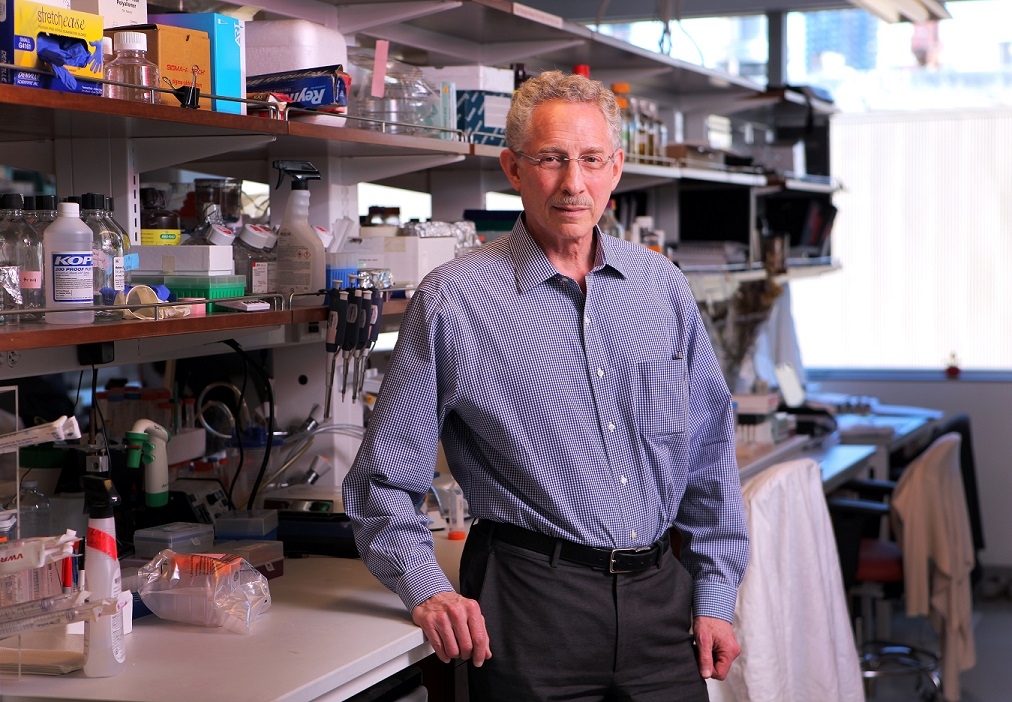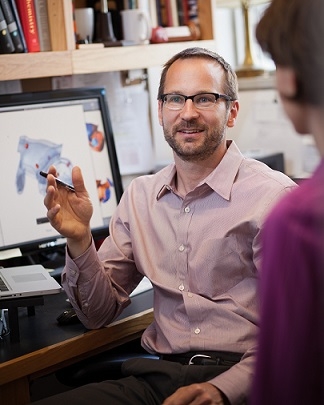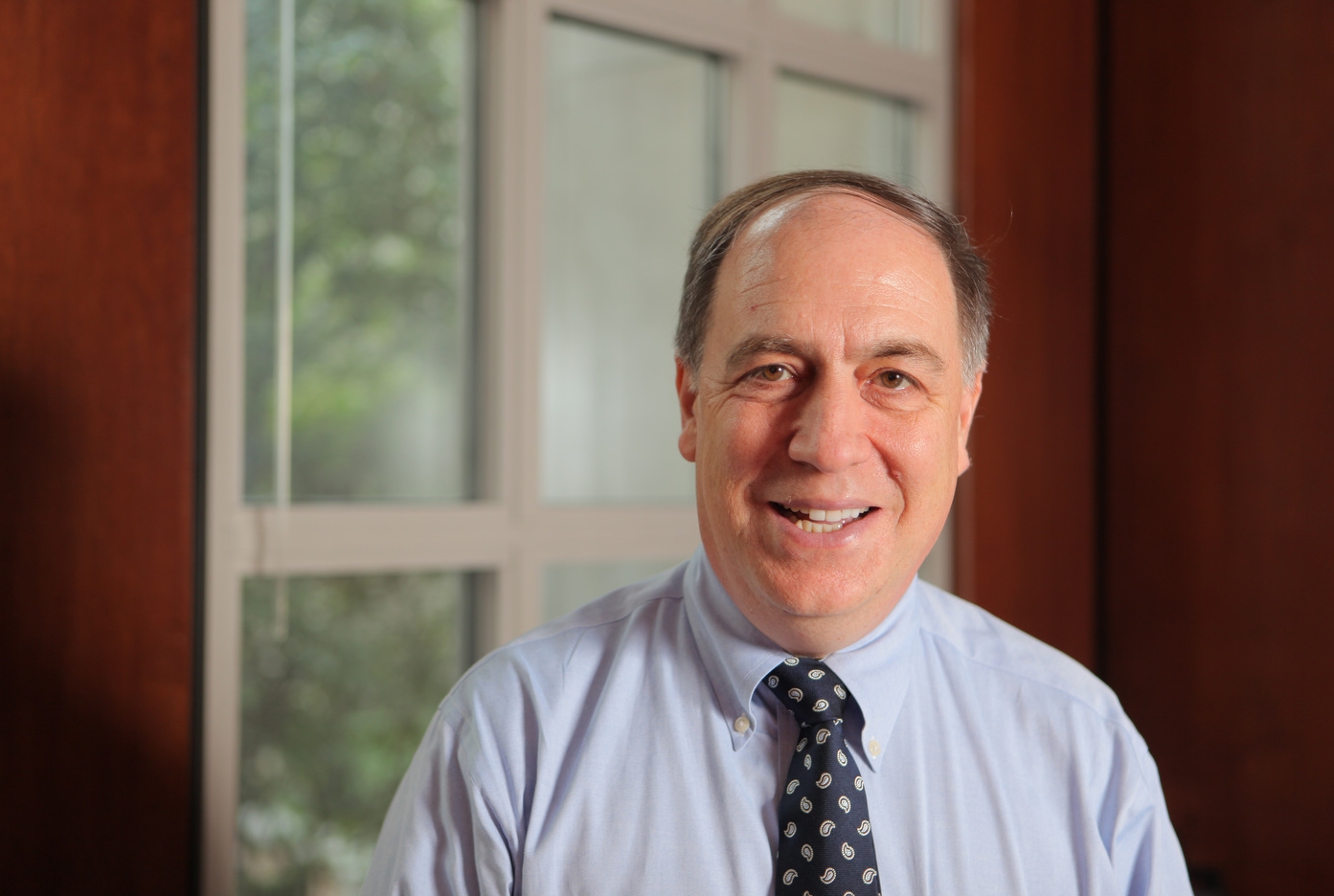NEW YORK (May 23, 2017) — A leading scientist and immunologist, Dr. Gary Koretzky has been appointed vice dean, focused on academic integration at Cornell University and Weill Cornell Medicine, effective July 1. In his new role, Dr. Koretzky will lead an initiative to strengthen the critical bridges between New York City and Ithaca by further aligning scientific and educational activities at Weill Cornell Medicine with those at Cornell Tech and Cornell’s main campus in Ithaca.
Dr. Carl Nathan will succeed Dr. Koretzky as dean of the Weill Cornell Graduate School of Medical Sciences, effective Sept. 1, pending the approval of the Weill Cornell Medicine Board of Overseers and Cornell University Board of Trustees.
“At Weill Cornell Medicine, we pride ourselves on our collaborative spirit,” said Dr. Augustine M.K. Choi, the Stephen and Suzanne Weiss Dean of Weill Cornell Medicine and provost for medical affairs of Cornell University. “Bringing investigators together from different fields can not only lead to innovations in research, but foster an environment of learning and the exchange of new ideas. As a respected scientist and educator, Dr. Koretzky is the ideal choice for this new role. His vision for this initiative will undoubtedly help to advance our mission of collaboration, bridging the three Cornell campuses and facilitating new partnerships.”
“Fostering a greater integration of our academic programs is a critical element in our connecting Cornell strategy. This effort will leverage the breadth and excellence of Cornell faculty through specific initiatives to facilitate and nurture combined research programs and integrate academic units, as well as strengthen the connections between New York City and Ithaca,” said Cornell University Provost Michael I. Kotlikoff. “I am delighted that Dr. Gary Koretzky, who has been successful at building strong multidisciplinary programs at Weill Cornell Medicine, has agreed to spearhead this initiative. By further aligning faculty recruitment, graduate education and research infrastructure, Cornell will continue to break down barriers, build relationships among researchers and create additional collaborative research opportunities.”Since its founding more than 150 years ago, Cornell University has led critical advances in the humanities and the arts, science and medicine that have improved lives. The work of faculty, students and staff on Cornell University campuses in Ithaca and New York City impacts life in New York state and beyond. Cornell’s academic, research and outreach programs on all campuses reflect an academic environment that inspires collaboration.
As vice dean, Dr. Koretzky will draw on the strengths and expertise of faculty and students at Weill Cornell Medicine, Cornell Tech and the Ithaca campus to bolster research and educational opportunities within the Cornell community. By creating synergies among investigators, Cornell will empower the transformation of individual projects into larger programs with increased visibility and impact.
“Weill Cornell Medicine’s research expansion over the past four years has created a community of investigators who are making important discoveries that are directly relevant to human health and disease,” said Dr. Koretzky, who is also the Frank H.T. Rhodes Distinguished Professor in Cardiovascular Biology and Genetics. “Transforming outstanding research projects into world-class programs requires bringing scientists with complementary interests and skills together. The depth and breadth of research investigation on the Ithaca campus represents an extraordinary opportunity for this integration.”
To accomplish this, collaborations between faculty at the three campuses will be financially supported, with the goal of developing synergistic and innovative projects that will lead to impactful discoveries, taking Cornell’s science programs to the next level of excellence and enticing agencies that fund medical research. Other proposed efforts include the creation of symposia to help facilitate these working relationships, and the formation of cross-campus working groups to realize opportunities to integrate programs across the different Cornell campuses. The focus of these groups would initially be on three disciplines: genetics and genomics; data science; and microorganisms and infectious disease.
Dr. Koretzky will also facilitate greater integration of the myriad scientific and medical graduate programs in New York City and Ithaca by promoting in-person collaborations and supporting efforts to create joint classes and retreats that draw on complementary expertise.
Dr. Carl Nathan to Head Graduate School

Dr. Carl Nathan. Photo credit: John Abbott
As the new graduate school dean, Dr. Nathan will ensure that students engage in the most rigorous curriculum possible to maximize their competitiveness in a rapidly evolving scientific research environment. The graduate school has a distinguished reputation for excellence in education, boasting more than a dozen doctoral and graduate programs with its partner, the Sloan Kettering Institute. Dr. Nathan will continue to build on Weill Cornell Medicine’s commitment to recruiting and supporting students from diverse backgrounds and fostering a vibrant and inclusive scientific community. These efforts led to a 238 percent increase in the number of minority students who enrolled at the graduate school in fall 2016, compared with 2015. “This is important as a matter of social justice, and we have already made extraordinary achievements in that area,” Dr. Nathan said. “Weill Cornell Medical College has been at the forefront of expanding student diversity, and it’s gratifying to see the Weill Cornell Graduate School of Medical Sciences accomplish the same and take its rightful place as a partner.”
“Dr. Nathan is the perfect choice to lead the Weill Cornell Graduate School of Medical Sciences,” said Memorial Sloan Kettering President and CEO Dr. Craig Thompson. “He brings tremendous breadth of expertise to this role as a leading research scientist, educator and academic administrator. His deep involvement and long history in tri-institutional initiatives is sure to benefit our ongoing partnership.”

Dr. David Christini. Photo credit: Roger Tully
Dr. Nathan also hopes to explore with graduate school program directors how to expose students to a variety of essential technologies and increase community access to education in medicinal chemistry, in collaboration with the Tri-Institutional Therapeutics Discovery Institute, a not-for-profit corporation owned by Weill Cornell Medicine, Memorial Sloan Kettering Cancer Center and The Rockefeller University. A world-renowned scientist and leading voice for developing solutions to antibiotic resistance, he will continue to serve as the R.A. Rees Pritchett Professor and chairman of Weill Cornell Medicine’s Department of Microbiology and Immunology, remaining active in research. “I am passionate about training the next generation of scientists,” Dr. Nathan said. “Keeping my lab going at full speed and continuing to collaborate closely with my students and postdocs will not only ensure that essential research projects advance, but that I stay intimately familiar with the educational and professional development needs of the very students we train in the graduate school.”
Dr. David Christini has been appointed vice dean of the graduate school after serving as the associate dean for programmatic development there since 2013. As vice dean, he will expand his role, most notably in helping to envision and enact the graduate school’s continually evolving approaches to train its master’s and doctoral students to become leaders in their fields. His service as chair of a National Institutes of Health training grant study section, which begins this fall, will enable him to help drive a national discussion about biomedical research training and expose graduate students to the latest innovations. Dr. Christini, a professor of biomedical engineering in medicine and of physiology and biophysics, will continue to lead his research team, which uses computational and experimental approaches to improve the understanding of and treatments for cardiac arrhythmias as part of the Cardiovascular Research Institute at Weill Cornell Medicine.
About Drs. Koretzky and Nathan
Dr. Koretzky received his bachelor’s degree from Cornell University in 1978 and his medical degree and doctorate in immunology in 1984 from the University of Pennsylvania. He completed a residency in internal medicine, a fellowship in rheumatology and conducted postdoctoral research at the University of California, San Francisco before being appointed to the faculty of the University of Iowa College of Medicine in 1991. After spending eight years at the University of Iowa, Dr. Koretzky returned to the Perelman School of Medicine at the University of Pennsylvania in 1999 as professor of pathology and laboratory medicine and director of the Signal Transduction Program at the Abramson Family Cancer Research Institute, where he was also chair of its executive committee and a past chief of the Division of Rheumatology and vice chair for research in the Department of Medicine. Dr. Koretzky is a past president of the American Society for Clinical Investigation and councilor of the Association of American Physicians. He is currently a councilor of the American Association of Immunologists and an elected member of the National Academy of Medicine and American Academy of Arts and Sciences. Dr. Koretzky was recruited to Weill Cornell Medicine in 2013 as dean of the Weill Cornell Graduate School of Medical Sciences and vice dean of research. As graduate school dean, Dr. Koretzky has enhanced the school’s curriculum, developed new educational programs, improved administrative support services and strengthened the partnership with the Sloan Kettering Institute. As vice dean of research, he has helped to expand Weill Cornell Medicine’s research enterprise, organizing faculty into thematic research programs headquartered on York Avenue and in the new Belfer Research Building, recruiting top-flight scientists to conduct research in Weill Cornell Medicine’s newly established translational research centers and increasing the institution’s sponsored research funding.
Dr. Nathan received his bachelor’s degree in 1967 from Harvard College and his medical degree in 1972 from Harvard Medical School, after which he trained in internal medicine and oncology at Massachusetts General Hospital, the National Cancer Institute and Yale before joining the faculty of The Rockefeller University from 1977-1986. At Weill Cornell Medicine since 1986, he has served as professor of medicine, founding director of the Tri-Institutional MD-PhD Program, senior associate dean for research and acting dean. He co-chaired the Program in Immunology and Microbial Pathogenesis at Weill Cornell Graduate School of Medical Sciences for 18 years. Dr. Nathan led the planning team for the Tri-I TDI and is a now a member of its board of directors. Dr. Nathan is a member of the Bill and Melinda Gates Foundation’s TB Drug Accelerator and principal investigator of the NIH-funded Tri-Institutional TB Research Unit. He has been elected to the National Academy of Sciences, the National Academy of Medicine, the American Academy of Arts and Sciences and the American Academy of Microbiology.
Weill Cornell Medicine
Weill Cornell Medicine is committed to excellence in patient care, scientific discovery and the education of future physicians in New York City and around the world. The doctors and scientists of Weill Cornell Medicine — faculty from Weill Cornell Medical College, Weill Cornell Graduate School of Medical Sciences, and Weill Cornell Physician Organization — are engaged in world-class clinical care and cutting-edge research that connect patients to the latest treatment innovations and prevention strategies. Located in the heart of the Upper East Side's scientific corridor, Weill Cornell Medicine's powerful network of collaborators extends to its parent university Cornell University; to Qatar, where Weill Cornell Medicine-Qatar offers a Cornell University medical degree; and to programs in Tanzania, Haiti, Brazil, Austria and Turkey. Weill Cornell Medicine faculty provide comprehensive patient care at NewYork-Presbyterian Weill Cornell Medical Center, NewYork-Presbyterian Lower Manhattan Hospital and NewYork-Presbyterian Queens. Weill Cornell Medicine is also affiliated with Houston Methodist. For more information, visit weill.cornell.edu.

